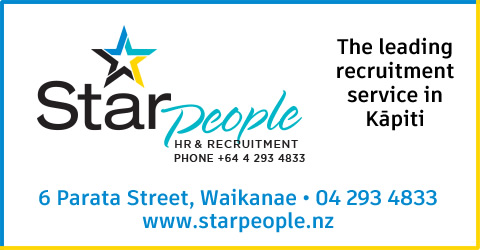
Ian Powell looks at the whys and why nots of Kāpiti rates
If it is to maintain their trust and confidence, Kāpiti Coast District Council must operate within what its ratepayers are prepared to support or tolerate in respect of rate increases. During this election campaign there have been calls from some candidates for a ‘line-by-line’ review of all Council spending in order to reject activities that are labelled the ‘nice to haves’.
These calls are genuine. They come from the heart. But they are also simplistic and lack the robustness that sustainable fiscal responsibility requires. To begin with this is a risky subjective approach. What is ‘nice-to-have’ for one person is core business to another, especially where wellbeing is involved.
Wellbeing is a core Council function under the Local Government Act. However, addressing it often requires beneficial measures that by their very nature are less tangible and less immediate.
It is naive to believe that rates should not be increased. Much of its expenditure needs to be spent on unavoidable fixed costs. But that does not mean that measures should not be taken to contain the level of increases. There are two main measures I would identify in order to ensure a more sustainable cost-effective Council.
The first is process improvement of the way KCDC staff are able to work. This is not a reflection of the commitment or dedication of current staff (as a ratepayer I have been impressed by the staff I’ve interacted with).
“What is ‘nice-to-have’ for
one person is core business to another,
especially where wellbeing is involved.“
Instead it is the leadership culture they are required to work within. The more micromanagement the leadership culture, the more constrained staff are able to work and the lower their job satisfaction. Their potential for innovation, efficiency and effectiveness is reduced.
On the other hand, the more empowered the staff are, the greater their job satisfaction. Those who do the job are generally those who know best how to improve it. The consequential benefits of a leadership culture of enabling staff empowerment are greater realisation of innovation, efficiency and effectiveness. This includes cost-effectiveness.
I have seen this in real life and real time in the health system. The greater health professional empowerment, the greater the accessibility and quality of healthcare for patients. Despite the different context, this empowerment principle applies also applies to local government.
The second measure involves the big fiscal ticket issue of infrastructure development decision-making. As the Gateway project has regrettably reaffirmed, the more poorly thought-out an infrastructure decision, the greater the financial wastage.
KCDC needs to rigorously put in place and consistently apply the basic premise that good intent is a starting point. But, on its own, this is not enough. If a project of good intent does not make good financial or environment sense, then it should proceed no further, either not at all or until it is reworked to ensure it does meet this threshold.
The best approach to ensure that ratepayers monies are not wasted and rate increases minimised is not a subjective mechanistic ‘line-by-line’ review. Instead it is to improve staff job satisfaction by empowerment and councillors adopting a more consistently rigorous approval process for infrastructure decision-making.
Ian Powell is standing as a Districtwide candidate for Kāpiti


















































